Why Parikshit Was Cursed?
Listen to the audio above
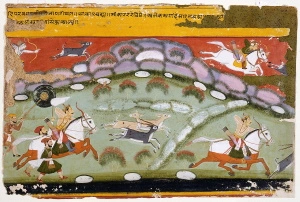
Transcript
(Click here to read more)
We saw how Mahabharata describes Raja Parikshit as an embodiment of dharma and an able administrator who really looked after his subjects very well. He was the son of Abhimnyu. He had good self-restraint. He had conquered kama, krodha, lobha, moha, mada, and matsarya. But then something went wrong. He got cursed. For a reckless act, he did it out of anger. Those days kings used to go hunting to kill rogue animals which harm people. On one such hunting expedition, after he shot an arrow at an animal, the animal went hiding in the deep fore....
Transcript
(Click here)
We saw how Mahabharata describes Raja Parikshit as an embodiment of dharma and an able administrator who really looked after his subjects very well.
He was the son of Abhimnyu.
He had good self-restraint.
He had conquered kama, krodha, lobha, moha, mada, and matsarya.
But then something went wrong.
He got cursed.
For a reckless act, he did it out of anger.
Those days kings used to go hunting to kill rogue animals which harm people.
On one such hunting expedition, after he shot an arrow at an animal, the animal went hiding in the deep forest.
Parikshit went after it.
And he got isolated from his retinue.
He was on foot, tired, hungry.
He was not young, he was sixty at that time.
While still looking around for the animal he saw a muni.
Tired and hungry, Parikshit went and asked him whether he had seen the animal.
The muni's name was Shameeka (शमीकः).
He was in mauna-vrata.
He didn't reply.
Parikshit did not realize that he was in mauna-vrata.
He may not have even realized that he was a muni.
It is not necessary that munis always wear saffron clothes, they have jata and beard.
That is in movies and serials.
There is no such dress code.
In fact, saffron is for sanyasis.
Most of the munis are householders, they are married, they have children.
So logically if you look at it, they would be dressed like any other householder.
You can't blame Parikshit fully for what he did.
If he had known that it was a muni he would have never done it.
Forget everything else, everyone knows that munis have got tapa shakti , they can curse.
I think Parikshit's case must have been one of mistaken identity.
He would have thought it must be an ordinary person.
Parikshit got offended and angry.
He saw a dead snake lying nearby.
Picked it up with the end of his bow, put it around the neck of the muni and went away, back to the palace.
Shameeka was a very accomplished tapaswi.
He just didn't respond.
Continued sitting there and observing his vrata.
But Shameeka had a son, Shringi.
Very powerful and very short-tempered.
He was on the way back from his gurukul when a friend reported to him what happened to his father.
The muni was still sitting with the dead snake around his neck.
Nobody knew who had done this atrocious act except Shameeka.
As soon as Shringi heard this he got enraged.
Who would do this to such a saint?
Shringi cursed.
Whoever has done this Takshaka will burn him to death with his lethal poison before the seventh night from now.
Takshakka will be compelled to do so by the power of my tapas.
Shringi went and told his father what he had done.
Shameeka called his shishya Gauramukha and told him to go and inform the king what had happened.
The curse is very powerful.
He has to save himself.
When he heard this Parikshit became terribly upset.
Oh, what have I done?
I should not have done this to a sage.
And he also got scared.
Because it was none other than the most powerful and cruel Takshaka who was going to come after him.
See the difference between the king and the sage.
Mahabharata itself says that Parikshit had self-restraint and he had conquered anger.
But that depends on the situation also.
Hungry and tired, he lost his control.
Shameeka had all the reason and justification to curse him then and there.
But he didn't do it.
Because his priority was to complete the mauna-vrata successfully, not cursing someone.
His control of the mind is the real control.
Then he also must have thought that a virtuous king such as Parikshit would not have done it if he had known that it was a muni.
That's why he cautioned.
Curse of Shringi; young blood.
He didn't even wait to see his father and check with him what had happened.
And why Takshaka?
Because the offense was committed with a dead snake.
The offender should be punished by a snake only.
Recommended for you
Are Mahamaya and Paramatma one and the same?
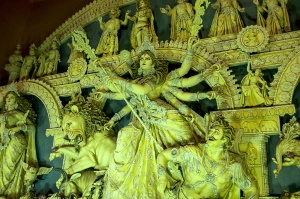 Click here to know more..
Click here to know more..
Mantra to take refuge in Durga Devi
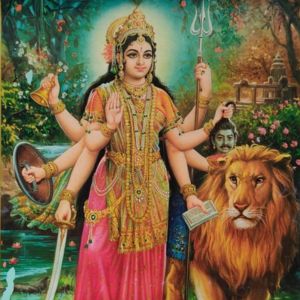
om hreem dum durgaam deveem sharanamaham prapadye....
Click here to know more..Hanumat Tandava Stotram
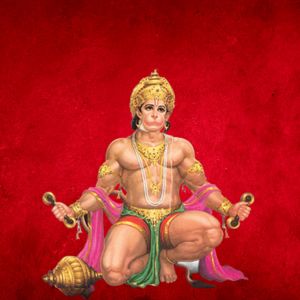
sukant'ha aapa taarakaam raghoottamo videhajaam nipaatya baalinam prabhustato dashaananam khalam. imam stavam kuje'hni yah' pat'hetsuchetasaa narah' k....
Click here to know more..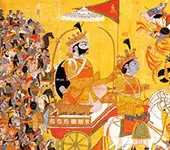
English Topics
Mahabharatam
Click on any topic to open
- 96 Two Curses That Worked against Karna
- 95 What is behind Calling the Five Brothers the Pandavas
- 94 Give up an Individual IF....
- 93 Fascinating Birth Story of the Kauravas
- 92 Overcoming Grief - Lessons from King Senajit's story
- 91 Yayati's Wisdom
- 90 Yayati's Story
- 89 Brahmacharis Can Bless And Curse
- 88 Human Nature - Comples Mix Of Good And Bad
- 87 Results Of Good Karma
Please wait while the audio list loads..
30
Ganapathy
Shiva
Hanuman
Devi
Vishnu Sahasranama
Mahabharatam
Practical Wisdom
Yoga Vasishta
Vedas
Rituals
Rare Topics
Devi Mahatmyam
Glory of Venkatesha
Shani Mahatmya
Story of Sri Yantra
Rudram Explained
Atharva Sheersha
Sri Suktam
Kathopanishad
Ramayana
Mystique
Mantra Shastra
Bharat Matha
Bhagavatam
Astrology
Temples
Spiritual books
Purana Stories
Festivals
Sages and Saints
